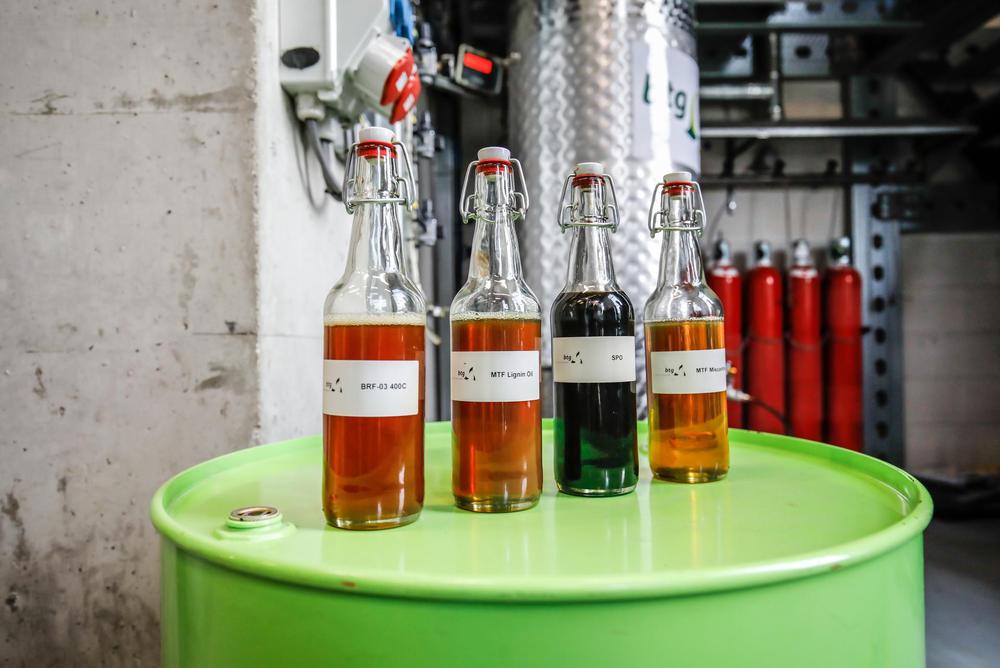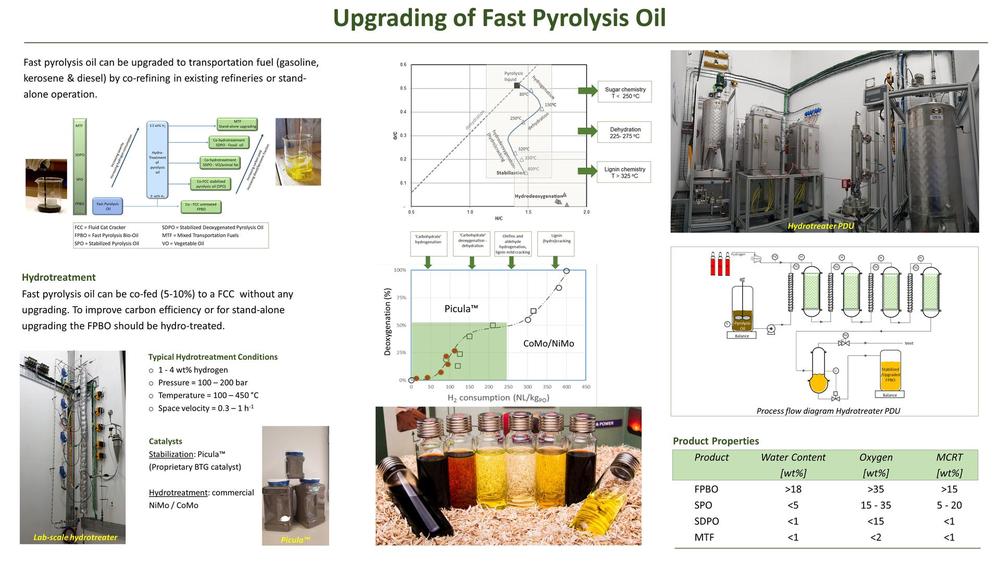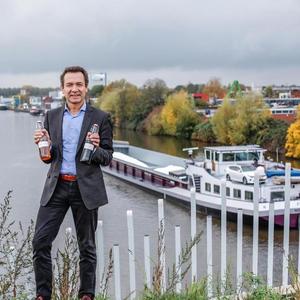BTG, GoodFuels explore options for joint biorefinery investment




Photo: BTG
November 18, 2019
BY Biomass Technology Group
Ships will soon be able to power their engines using 100 percent sustainable biofuel. This year, the Dutch company Biomass Technology Group will set up a new high-tech technology company for converting crude pyrolysis oil into diesel fuel suitable for the shipping sector. It will be the first refinery in the world for an advanced marine biofuel based on pyrolysis oil.
The new facility will be operated by a new company named BTG-neXt. In the first phase, BTG-nexT will focus on building a pilot refinery for converting pyrolysis oil into 100 percent sustainable biodiesel for ships in order to demonstrate that continuous production is feasible. Pyrolysis oil is made from biomass-based residues such as sawdust and roadside grass cuttings and is a sustainable alternative for replacing fossil fuels.
Scaling up
The new demonstration facility will have a planned production capacity of a modest 1,000 tons of advanced marine fuel per year. “That capacity is sufficient to demonstrate that the technology works and will serve as a basis for further scaling up our operations,” said René Venendaal, CEO of BTG. According to Venendaal, the pilot will require a six-figure investment. “We are now working on a more precise estimate of that figure,” Venendaal said. The goal is to use the precommercial facility as a reference for rolling out commercial refineries with a capacity of possibly hundreds of thousands of tons per year of an advanced marine biofuel for ships.
BTG previously adopted a similar strategy for the production of pyrolysis oil in 2008, when it established a new company called BTG-BTL. Under the responsibility of BTG-BTL, the Empyro production facility in Hengelo, the Netherlands, was built, which demonstrated that it was not only technically feasible to produce oil from sawdust but that it was also a commercially viable proposition. In 2019, Empyro was acquired by the waste processing company Twence. In 2019, BTG-BTL received its first orders for almost identical copies of the Empyro plant for delivery to companies in Sweden and Finland, where sawmill waste such as sawdust will be used for producing pyrolysis oil.
Partnership with GoodFuels
The plans drafted by BTG for the next decade have been welcomed with enthusiasm by the market. GoodFuels, a pioneer and market leader in sustainable biofuels for shipping, sees sufficient potential in BTG’s plans to explore the possibility of a collective investment in the demonstration plant.
“Over the last five years, GoodFuels has prepared the road for the use of biofuels in the shipping sector,” said Dirk Kronemijer, CEO of GoodFuels. “Together with partners such as Boskalis Loodswezen, Port of Rotterdam, Norden, Jan de Nul and its portfolio of GoodShipping A-Brand clients we have shown that these fuels will play an essential role in making shipping more sustainable. The next step is to scale up the processes without making any concessions in terms of the sustainability of the feedstocks used. BTG’s project meets all the crucial success criteria, and we are very proud to work together with BTG to introduce this highly significant innovative technology in the Netherlands.”
Advertisement
Advertisement
The intended location for the new pilot plant is “as close to home as possible,” explained Venendaal. “As was the case with BTG-BTL and Empyro, we need to have short lines of communication and be able to provide the services needed as efficiently as possible.” GoodFuels intends to market the pilot volumes produced in order to be able to also optimize the commercial business case.
“At present, most ships, in particular seagoing vessels, use low-quality fuel oil that is almost tar-like in nature,” Venendaal said. “The potential for growth in terms of sustainability is therefore extremely high for this sector.” The low-sulfur diesel fuel for the shipping sector made from pyrolysis oil also complies with the stringent standards that will be introduced in 2020 for sulfur emissions in the shipping industry.
Port of Rotterdam
The ports of Rotterdam and Eemshaven are the locations being considered for the first commercial processing plant. “Rotterdam would be our preferred location as most of our shipping clients are active here,” Kronemeijer said. “In addition, Rotterdam offers a great many opportunities for further integration due to the existing infrastructure already in place there.”
BTG has been working on developing the new technology since 2000. “We have been developing various building blocks over the past 15 years, which are part of several parallel projects still underway,” Venendaal said. “In the near future, we will be integrating these building blocks, in order to realize the new plant.” Venendaal has good hope that the first commercial plants will also be profitable on a limited scale. “We are looking at investments in the order of €200 million per processing plant, but we are already seeing that many potential clients, due to market demand, would prefer building even larger facilities,” Venendaal said.
The technology for producing oil via pyrolysis from plant-based residual waste streams such as wood residues and roadside grass was developed 30 years ago at the University of Twente. It is actually a similar process by which fossil oil is produced in the earth. The main difference is that it takes millions of years for it to happen in the earth’s crust, whereas the pyrolysis technology accomplishes this in only a few seconds. BTG was established in 1987 as an independent privately owned company specializing in the conversion of biomass into energy. In 1993, BTG acquired the rights from the University of Twente to further develop and scale up the new pyrolysis technology.
Advertisement
Advertisement
Related Stories
The public comment period on the U.S. EPA’s proposed rule to set 2027 and 2027 RFS RVOs and revise RFS regulations closed Aug. 8. Biofuel groups have largely expressed support for the proposal but also outlined several ways to improve the rulemaking.
In celebration of World Biodiesel Day, MOL Group on Aug. 8 announced SAF was successfully produced for the first time at INA’s Rijeka Refinery during a pilot project to process biocomponent. Renewable diesel was also produced.
At the University of Missouri, plant biochemist Jay Thelen is using arabidopsis as a powerful model to explore ways to boost oil production — an important step toward creating more sustainable, plant-based energy sources.
Iowa farmers have a new market opportunity for their 2025 soybean crop. Landus is expanding its Clean Fuel Regulation initiative, made possible by recent policy changes expected to increase Canada's demand for liquid biofuel.
Topsoe, a leading global provider of advanced technology and solutions for the energy transition, has been selected as the renewable diesel technology partner for CountryMark’s Mount Vernon, Indiana refinery.
Upcoming Events










